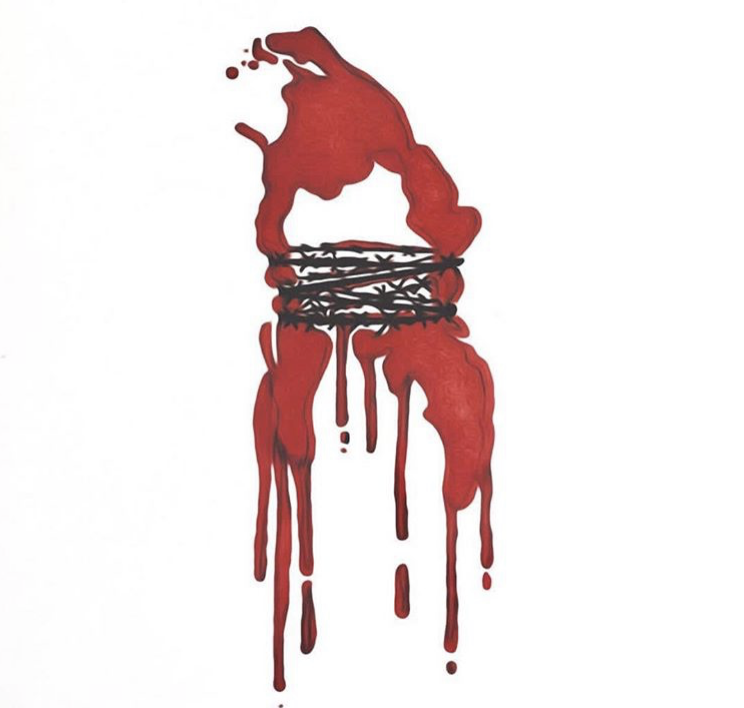
Illustration: @__sinblack
This week the Sri Lankan government issued a gazette announcing the proscription of hundreds of Tamils and several diaspora organisations, in a move that has generated shock and outrage across the world. The announcement, which renews and broadens a previous 2014 gazette is designed to criminalise, intimidate and terrorise. It must be immediately condemned.
The move clearly signals the path that the Sri Lanka state is choosing to forge. The fact that it comes just days after yet another UN Human Rights Council resolution on Sri Lanka was passed - at a time when international attention focussed once more on the island’s human rights situation - demonstrates not just how brazen Colombo is, but also how calculated it is with its oppression. The UN resolution mandated the collection of evidence of mass atrocities for use in potential war crimes trials around the world. By criminalising organisations and individuals from New Zealand to Italy to Canada, it aims squarely at breaking the Tamil diaspora connection to the North-East, stemming the flow of information to the outside world, and isolating the region further, as the regime attempts to cover up evidence of its abuses. Collecting, analysing and preserving evidence from the ground will be a much more difficult task as the regime clamps down on the war-torn regions even further.
Indeed, the new move comes at a time when militarisation and arrests under the draconian Prevention of Terrorism Act (PTA) are ramping up. This was a climate that the UN human rights chief expressed concern over in her report earlier this year, as she warned that more abuses may take place in the months and years to come. Instead of attempting to reverse that trajectory, this gazette is yet another sign that the Sri Lankan state has decided instead it will double down with its repression.
Colombo has also clearly marked out its targets. This new list, like the 2014 iteration, is arbitrary. It has listed groups that function legally and work closely with governments and civil society around the world. It has listed individuals as old as 97-years-old and as young as 18-years-old. It has even listed some Tamils who have already passed away. There is no list of what crimes have been committed or criteria as to what Sri Lanka defines as “terrorism”. But by proscribing hundreds of Tamils and Muslims, the state has made abundantly clear that anyone it deems as a threat to its ethno-nationalist hegemony, is a target.
Many of those names that have been listed as living on the island are now at a grave and immediate risk. Furthermore, the planned deportation of as many as 100 Tamils from Germany to Sri Lanka tomorrow now has even more reason to be urgently halted. To forcibly deport Tamils to Sri Lanka in light of such renewed significant and obvious threats, breaks the fundamental principle of non-refoulment. All those at risk must be protected.
“In addition to the obvious threat of arrest and freezing of assets, the publishing of home addresses, disturbingly reminiscent of the electoral lists carried by Sinhala mobs during the pogrom of 1983, is an incitement to violence, not only on the island, but around the world”.
There now presents the stark and very real danger of further violence, the type that Tamil activists and human rights organisations have repeatedly warned of. The international community can not say it has not been made aware. Indeed, Sri Lanka has made it clear for them. A robust response is now required.
